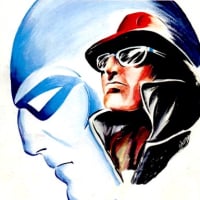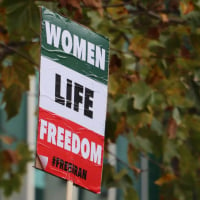Attention: Please take a moment to consider our terms and conditions before posting.
History

iainment
Posts: 8,132
At what point do past events become history?
I’m 64 and I’m aware that events in my lifetime like the American involvement in Vietnam are now studied as history.
I’m 64 and I’m aware that events in my lifetime like the American involvement in Vietnam are now studied as history.
What’s the cut off?
1
Comments
-
The instant they happen.2
-
One of my history A level topics of focus was Britain 1951-2007. Wasnt even like stuff my parents told me about, there was events in there I remembered happening in my teenaged years.Given I left school in 2013 it was absolute madness. Quite an interesting period though and did link well with politics A level.2
-
I would say its rolling, certainly Thatchers Britain of the 80s and Cool Brittania of the mid 90s would be fair game for historians, The World at War series came out early/mid 70s so personally I would say between 20-30 years after the event?
For instance
Clive Mendonca - History
BFG - Current affairs
Yet both are covered in the museum
It's a very good question though and one to be debated without an objective right answer,
I guess it's all about the historiography and what is relevant to the person considering the question.3 -
History is dead. Everything is a lie.1
-
Blimey and I thought COVID-19 was a threat to my day job!!Wheresmeticket? said:History is dead. Everything is a lie.5 -
45 years.
Fact.1 -
Agree with stig
The moment something has happened its in the past and is therefore history1 -
c 1972 Modern History 'A' Level stopped in 1945.
In literal terms, as already said, anything that has happened is history.0 -
Charlton Life on a Friday night is some good stuff0
-
Agreed, I’ve been to the pub tonight! I’m now home, the pub is now historypaulie8290 said:Agree with stig
The moment something has happened its in the past and is therefore history0 -
Sponsored links:
-
I took ('modern' - post 1918) History O Level in the early 80s, and picked up a miserable 'D'!!! At the time, I only needed an English Lang O Level (and to pass the 'entrance' test) for the job I wanted to do, and so everything else took a back seat, whilst I made no real effort other than in English!
Hindsight, of course, is wonderful, and it really pees me off when I think of my attitude at that time.
History now absolutely fascinates me. I've a particular interest in WWI (bolstered by a few humbling trips to the Ypres salient), and the events surrounding the holocaust are also of great interest (if that's the correct phraseology?).
Have even discovered a new found curiosity in the monarchy, because I get really annoyed when I watch 'The Chase' and don't know some of the answers to the questions covering that topic! The period around the 'reformation' is fascinating.
As my folks always said, "you must try harder at school"!!2 -
If it even exists at the moment, seeing as you're not observing it so therefore have no way of knowing for sure.Todds_right_hook said:
Agreed, I’ve been to the pub tonight! I’m now home, the pub is now historypaulie8290 said:Agree with stig
The moment something has happened its in the past and is therefore history0 -
The last time we beat millwall is officially historical0
-
The Schrödinger ArmsAddicksAddict said:
If it even exists at the moment, seeing as you're not observing it so therefore have no way of knowing for sure.Todds_right_hook said:
Agreed, I’ve been to the pub tonight! I’m now home, the pub is now historypaulie8290 said:Agree with stig
The moment something has happened its in the past and is therefore history2 -
I agree totally. A further debate though is, what is worthy to be considered 'history' for study?Stig said:The instant they happen.
As a secondary school History teacher for nearly all of my career, I found the limitations of the examination syllabi, and National Curriculum in later years, very frustrating.
After school, so many adults seem to return to and enjoy history of all kinds. The human story element seems to have been squeezed out of history in schools for the pursuit of source recognition and bias etc. Very worthy and valuable, but so is the human story.1 -
Thanks all.
FWIW I think it’s fifty years but I can see the arguments given here are all valid.I used to think history begins when all those alive when something happened were dead.1 -
Why 50 years though? That's just an arbitrary number.2
-
There are perspectives, national myths and inherited grievances. Each new set of circumstances is informed and formed by what went before.
This is an approach I’ve been involved in recently
0 -
@Redmidland’s teenage years = Ancient History 😉2
-
 Marksist persective
Marksist persective
0 -
Sponsored links:
-
 Wiggish?
Wiggish?
1 -
I have always considered 'history' being the moment the last witness to a given event dies. Anything that disappears from living memory becomes history.
I'm not interested enough to look, but I would imagine that according the Cambridge or Oxford dictionaries the word 'history' would have lots of meanings.
1 -
Bonne for Lapslie. Reasonable change that, glad to see Bows making an early change. Lapslie was working hard but struggled to really get in the game. Can we get a fast start to a second half for a change. An early goal could change everything.0
-
Boro timewasting already. I’ll take that.0
-
Exiled_Addick said:Bonne for Lapslie. Reasonable change that, glad to see Bows making an early change. Lapslie was working hard but struggled to really get in the game. Can we get a fast start to a second half for a change. An early goal could change everything.
Is that history?Exiled_Addick said:Boro timewasting already. I’ll take that.1 -
Which begs the question, why do you need a number to define history?iainment said:
Any number in this is arbitrary.Stig said:Why 50 years though? That's just an arbitrary number.
Try finding a definition that's not number based and you've a better chance of finding one that's not arbitrary.Clue: There's one at the top of the thread. 0
0 -
I like that it’s 50 years though 🙂1
-
?🙄theeenorth said: Marksist persective0
Marksist persective0 -
I saw a very interesting insightful programe about the history and birth of London. I think it was on channel 4.
I believe the Roman empire built the bridges by the themes in 200 AD. It was called "Londinium" in those days, only roughly 30,000 people lived there and it was in close proximity to London bridge itself.
A lot of archaeological history paints the picture of what occured throughout the past 2,000 years.
https://www.thehistoryoflondon.co.uk/the-rise-and-fall-of-the-first-roman-town-of-londinium/2














